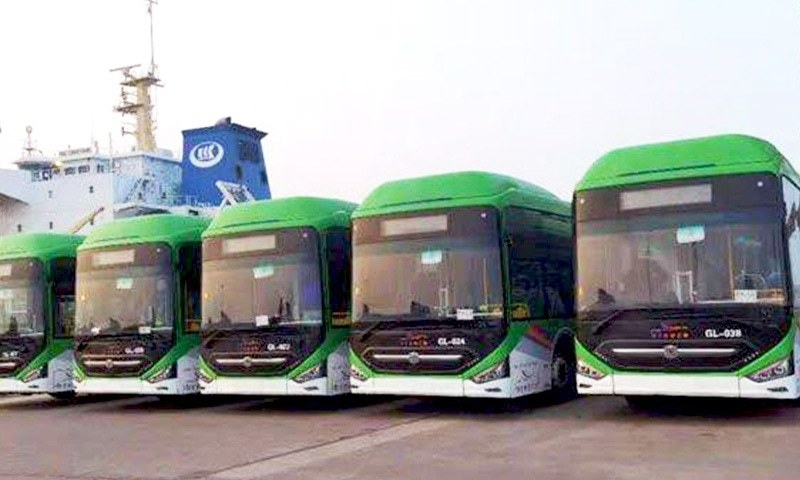PTBP Web Desk
The Federal Board of Revenue (FBR) has withdrawn the 0.25% penalty imposed on the declared value of goods under Section 82 of the Customs Act, 1969, sources revealed. This decision was taken without the issuance of a formal notification, raising questions about procedural transparency but offering immediate relief to customs clearing agents.
According to senior sources familiar with the development, the rollback of the penalty is currently in effect but awaits an official announcement or notification from the federal government. The decision appears to have been made in response to pressure from customs stakeholders, particularly the Association of Customs Agents, who argued that the penalty system was causing undue inconvenience at ports.
Customs clearing agents have faced increasing operational challenges at ports due to growing port congestion and tighter compliance rules. The 0.25% penalty, which was reportedly being applied on the declared value of goods if certain customs procedures were not followed within specified timelines, added to the difficulties. FBR’s decision to temporarily roll back the penalty, despite the lack of a formal notification, seems to be aimed at reducing procedural bottlenecks.
The Association of Customs Agents of Pakistan took up the issue with both FBR and Pakistan Customs, expressing concerns over the implementation of the penalty in the absence of clear guidelines and the legal notification required for enforcement. Their proactive approach helped prompt this rollback, though the situation remains in a temporary state of legal ambiguity until a notification is officially issued.
Earlier, the FBR had planned amendments to Section 82 of the Customs Act to introduce more clarity and enforceability. The aim was to reduce dwell time at ports and promote faster cargo clearance. The proposal suggested that goods declarations for home-consumption, warehousing, or trans-shipment must be filed within ten days of the arrival of goods at a customs station. If these declarations were not made within the prescribed time, the owner of the goods would be liable for penalties—one of which was the 0.25% charge on the declared value.
Additionally, the FBR proposed further conditions based on vessel berthing and cargo clearance timelines:
- If the goods declaration is filed before the vessel berths, and the goods are not removed within three days after the completion of assessment and berthing, penalties would apply.
- For declarations filed after the berthing, a similar three-day window post-clearance was proposed for cargo removal.
In conjunction with these amendments, Section 83(1) was also under revision. This section deals with the clearance of goods through computerized customs systems. The intent was to streamline procedures and bring them in line with modern customs practices, especially considering Pakistan’s ongoing digitalization efforts in trade facilitation.
The temporary rollback of the penalty is expected to bring short-term relief to the business community, particularly importers and customs agents operating through Karachi Port, Port Qasim, and other key customs stations. Pakistan’s ports have long struggled with delays in cargo handling and customs clearance, often leading to container demurrages, detention charges, and congestion surcharges by shipping lines.
By withdrawing the penalty, the FBR seems to be acknowledging the need to balance enforcement with practical trade facilitation. This move could also ease the burden on customs officers, who had to implement the penalties in an environment lacking proper notification and clarity.
However, trade and legal experts argue that such actions must follow proper legal procedures to ensure institutional credibility. Operating without a formal notification creates room for arbitrary interpretation, weakens enforcement, and may lead to legal challenges in the future.
The Association of Customs Agents deserves credit for its swift engagement with FBR and customs authorities. Their advocacy highlights the importance of stakeholder involvement in shaping trade policy and customs administration. The Association emphasized that while they support streamlining customs operations, any implementation must come through official channels, with adequate notice and due process.
Their intervention brought the issue to the forefront, compelling FBR to reconsider the implementation of the penalty and prioritize formal notifications.
Despite the rollback, all stakeholders now await a formal notification from the federal government, which is essential to legitimize the decision and guide port authorities and customs officers. Until then, customs agents and traders must remain cautious, as the legal status of the rollback remains uncertain.
This episode underscores the need for the FBR to ensure that all policy shifts—especially those affecting commercial and trade operations—are clearly communicated and documented. Transparency, predictability, and legal consistency are critical to improving Pakistan’s Ease of Doing Business and its World Bank Logistics Performance Index ranking.




